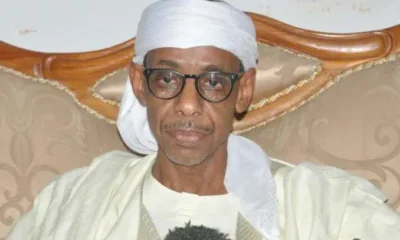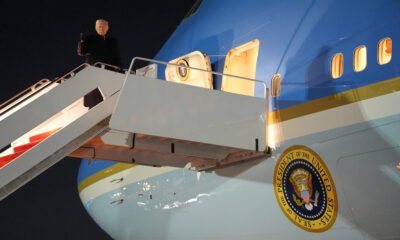Business
FCCPC warns Coca-Cola over ‘misleading products labelling, unfair marketing tactics’
The Federal Competition and Consumer Protection Commission (FCCPC) has warned Coca-Cola Nigeria Limited (Coca-Cola) and the Nigerian Bottling Company Limited (NBC) over the use of misleading trade descriptions.
FCCPC, in a statement on Thursday, said the companies have been carrying out unfair tactics, thereby “misleading consumers”.
The commission said Coca-Cola and the NBC are guilty of deceiving the public by describing the variant of its Coca-Cola “Original Taste, Less Sugar” as the same as its “Original Taste” variant in terms of formulation.
“In June 2019, the Federal Competition and Consumer Protection Commission (Commission) became aware that Coca-Cola Nigeria Limited (Coca-Cola) and Nigerian Bottling Company Limited (NBC) (jointly referred to as the “Companies”) had commenced a migration of their Coke brand from a formulation that included regular sugar to non-nutritive sweeteners,” the statement reads said.
“The migration at the time, though not concluded, apparently followed previously concluded, but undisclosed and uncommunicated migrations with respect to their other brands, to wit: Fanta and Sprite (as the Investigation will later discover).
“The strategy and conduct at the time appeared to possibly infringe FCCPA provisions prohibiting misleading trade descriptions, unfair marketing tactics, and questions whether some pricing strategies in certain geographical areas of Nigeria were on account of market power in the geographic areas, and as such constituted abuse of dominant market position.”
‘COMPANIES ABANDONED DEAL, USED DIFFERENT BUSINESS STRATEGY’
FCCPC also said Coca-Cola and the NBC abandoned months of work and mutually agreed outcome with the commission for a different business strategy.
This adopted strategy, the commission said, has turned out not to meet the applicable standards.
“Accordingly, and considering that the conduct continues and remains, the Commission has entered, issued and served its Final order on Coca-Cola and NBC on July 29, 2024,” the statement further reads.
“The Final Order contains the Commission’s findings some of which include:Misleading trade descriptions under Section 116 FCCPA by continuing to mislead consumers to believing Coca-Cola Original Taste is not materially different from Coca-Cola Original Taste ‘Less Sugar’.
“Unfair marketing tactics: Contrary to Section 124(1)(a) of the FCCPA, Coca-Cola Nigeria markets Coca-Cola Original Taste Less Sugar in packaging first, indistinguishable, and now not sufficiently distinguishable from Coca-Cola Original Taste, contrary to Sections 123(1)(a), (b), and (c) of the FCCPA.”
The commission said Coca-Cola and NBC, after regulatory intervention, still failed to take appropriate steps to “modify misleading behaviour demonstrating that the companies acted intentionally by misrepresenting Coca-Cola Original Taste Less Sugar as Coca-Cola Original Taste in a deliberate business strategy”.
“Furthermore, NBC used identical packaging for both Zero Sugar and its 50:50 variant of Limca Lime- Lemon flavoured drink, misleading consumers and violating Sections 17(g), 116(1) & (2), and 123 of the FCCPA and Section 2(a) of the National Agency for Food and Drug Administration and Control Act 2004,” the statement added.
“The commission found NBC applied deceptive trade descriptions to the two variance and supply these products to consumers violating Section 116 (3) of the FCCPA.”
The commission said it has reserved the question of “abuse of dominance and quantum of the penalty appropriate under the FCCPA and Administrative Penalties Regulation 2020 (APR) for further regulatory action, and same will be imposed in due course”.
FCCPC’S ORDERS TO THE COMPANIES
The commission, therefore asked the companies to ensure sufficient and acceptable packaging, labels, and differentiation between Coke Original Taste and Coke Original Taste Less Sugar — satisfactory to and approved by the commission.
FCCPC also ordered the immediate conduct of a robust advertorial campaign of all its product variants in a manner that provides consumers with clear and adequate identification factors that aid them in clearly distinguishing one variant from the other, without ambiguity, deception or confusion.
The commission noted that the companies are subject to supervision for a period of 24 months.
On July 19, the FCCPC fined Meta $220 million for data privacy violations.





















